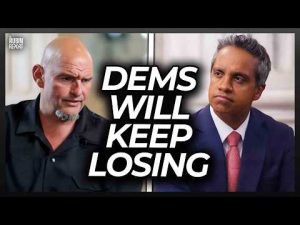**The Youth Job Crisis: A Closer Look at Economic Policies and Their Effects**
This Holy Week, Angel Studios, beloved by many, is gaining attention not only for its captivating feature films but also for how it resonates with real-life issues affecting young Americans. The challenges faced by young people today—ranging from job insecurity to the aspiration of home ownership—are front and center in a series of discussions sparked by recent political events. As economists, educators, and policymakers continue to dissect the ramifications of prevailing economic policies, it’s apparent that the need for effective solutions grows ever more pressing.
One prominent theme highlighted in recent dialogues is the anxiety young people experience as they approach graduation and the daunting job market. Many students express concerns over their ability to secure satisfying employment, afford a home, or start a family. The question is, how can current political leadership turn the tide? Youths are looking for bold action and assurance that their economic future isn’t just a gamble but a well-played strategy.
In recent discussions surrounding economic policies, the Trump administration’s approach to managing the economy has been celebrated by some as a catalyst for positive change. Proponents point to decreasing oil prices and a proposed tax bill designed to relieve the middle class as significant victories. They argue that eliminating taxes on tips and overtime pay will enable young workers to keep more of their hard-earned money, thereby bolstering their financial prospects. Such measures ostensibly present a roadmap for young Americans to increase their financial stability and realize their dreams of home ownership.
However, not everyone is convinced that these policies will yield the intended benefits. Critics point to the potential consequences of tariff implementations that could burden American businesses and inadvertently increase costs for consumers. The fear is that while the government aims to spur domestic production, the real outcomes could lead to inflationary pressures and a recession—the last thing young Americans need on their path to independence. The conversation emphasizes the disparity between well-meaning policies and their practical consequences, leaving many students anxious about their future job prospects.
Despite these varying opinions, the spectators—those young people who stand to be directly impacted—remain hopeful. They are keen observers of both sides of the debate, hoping to see tangible improvements in their daily lives. Many are eager for leaders to understand that their decisions now can either empower or hinder this generation’s dreams. Should the policies influence industries favorably, create jobs, and ensure home ownership is within reach, there seems to be a light at the end of the tunnel.
As America moves forward, distinct voices will continue sharing opinions and dissecting policies, reflecting the complexity of ideas surrounding the economy. Whether the current leaders succeed in turning shifting tides into favorable winds for young Americans remains an open question. The youth—driven, passionate, and ready to take on the world—awaits the outcome of these bold economic strategies and the leadership’s capacity to forge an American future that allows them to thrive. Meanwhile, as they navigate their education and early careers, they remain focused on the ultimate goals: financial independence, job security, and the nuclear family dream. So let’s keep our fingers crossed and hope that the upcoming years prove to be fruitful!







